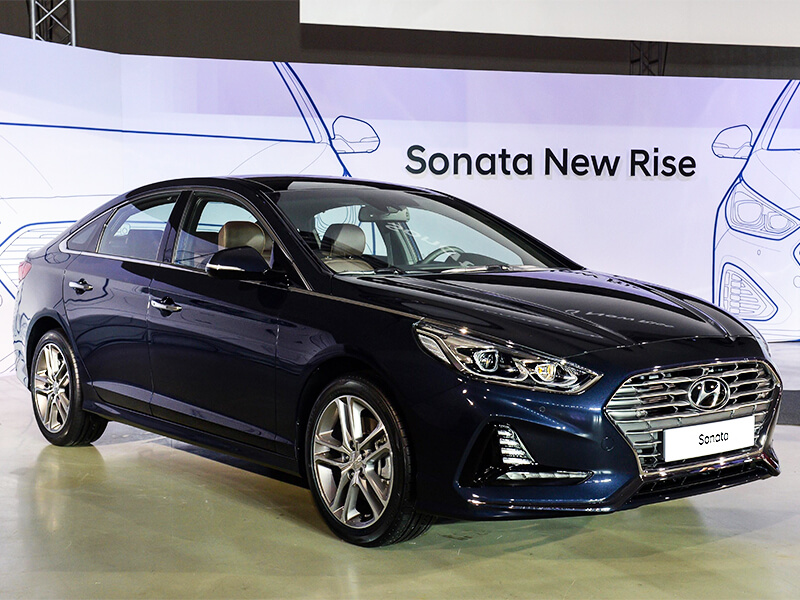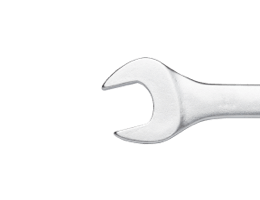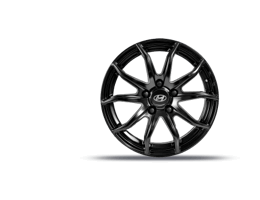- Hyundai Motor unveils the heavily-revised Sonata in Seoul
- The new Sonata exhibits extensive design enhancements that retain sophistication and eye-catching appeal while providing a look to where Hyundai sedan design is headed
- Updated Sonata includes the most comprehensive advanced safety systems in the mid-size sedan segment
- Driving experience is enhanced further through the addition of an eight-speed automatic transmission to the 2.0L Turbo model
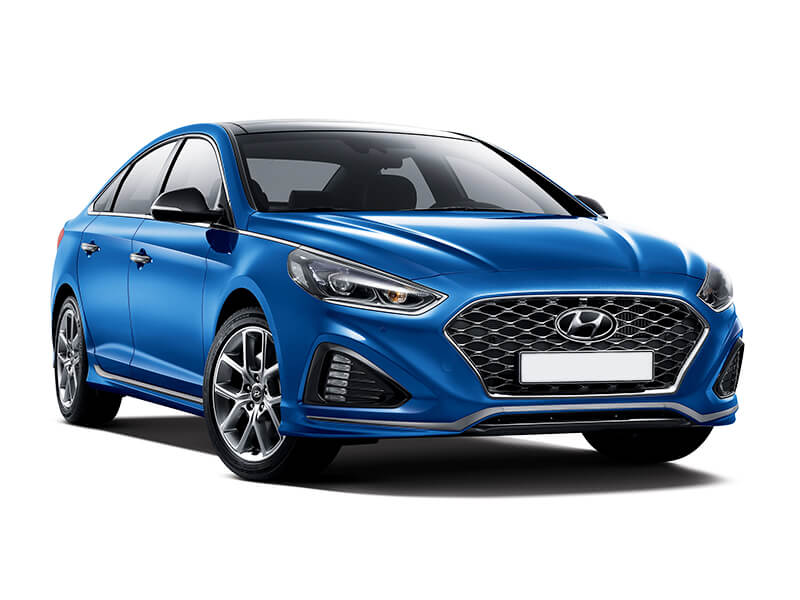
Hyundai Motor today unveiled its updated Sonata model, showing the flagship sedan for the first time at the design-focused Dongdaemun Design Plaza, an iconic, cultural landmark of Korea’s capital.
The new Sonata builds on the success of previous generations of the car while introducing a number of dramatic design changes that are aligned with Hyundai’s evolving design philosophy. This progressive design approach results in a bolder, more sophisticated exterior, with precise lines and distinctive styling cues that reflect Hyundai Motor’s latest design language. The new Sonata will also continue the model’s strong reputation for performance, with driving dynamics coupled with an unsurpassed suite of advanced safety offerings.
Exterior design evolution increases style and desirability
The bold new styling of Sonata aligns the car with Hyundai’s evolving design philosophy. The precise lines and distinctive styling cues create an un-conventional and eye-catching style, reflecting Hyundai Motor’s latest design language.
At the front of the sedan, the new grille combines with the vertical LED daytime running lights (DRLs) and the narrower headlights, which are engulfed by the sculpted hood, for a more dynamic purposeful appearance. The larger, more prominent ‘cascading grille’ symbolises the flow of molten steel, while also emulating the elegant shape of a Korean celadon vase.
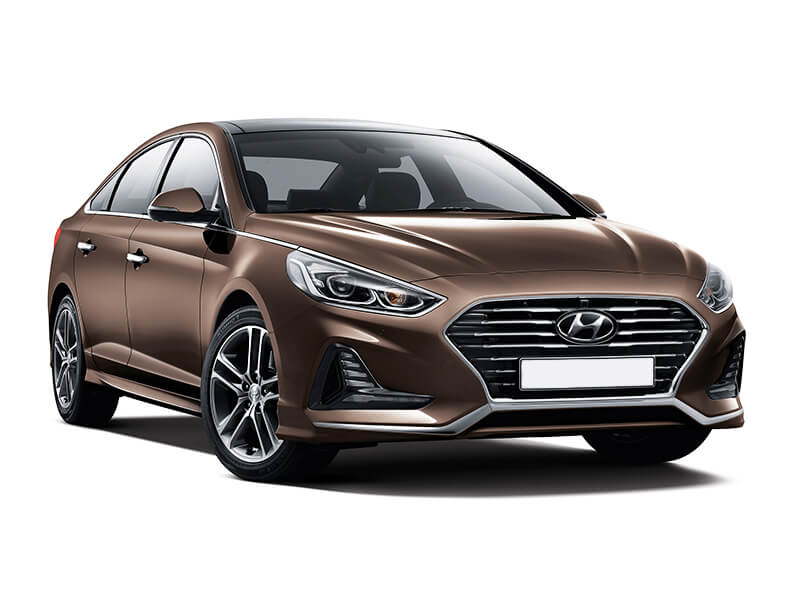
Continuing this theme, the chrome on the front lower spoiler flows out toward the outer edges of the car, while the sleek and sensuously sculpted lines at the side are also complimented by chrome trim around the windows. From the side, the car’s designers have created a more dynamic attitude in the side profile by enlarging the trunk lid to counterbalance the lower, wider front radiator grille, making the hood appear longer and sleeker.
The large Sonata lettering and Hyundai logo added to the centre of the trunk lid projects visual self-confidence, with the top portion of the badge also cleverly housing the truck release button. Other fine details such as new distinctive taillight graphics and dramatic illumination add interest to the rear, while the rear license plate holder has also been moved downwards from the trunk lid to the lower bumper, boosting the car’s distinctive design flair.
The 17-inch directional spoked wheels add to the sense of purpose, with two new 18-inch alloy wheel designs also added to the line-up to offer a wider choice of styles for customers.
Further design enhancements have been made for the 2.0L Turbo petrol model, which is available in North American, Australian and other selected markets. The front receives a sporty mesh radiator grille that is augmented by black bezel headlamps, black DRL surrounds, black lower front bumper and black side mirror casings.
Other enhancements for the Turbo model include dark chrome moulding for the lower side body, door handles and rear lamp moulding. The rear diffuser and dual exhaust mufflers are also adorned with chrome, to complete the car’s premium appearance.
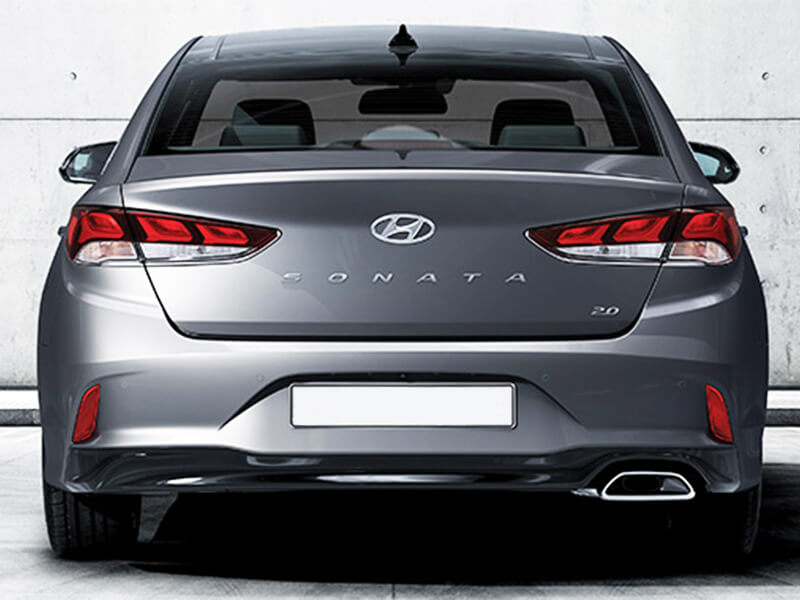
Interior enhancements increase style and refinement
Inside the new Sonata, the centre console stack has been enhanced with larger features to create a more visually-striking appearance. Revised audio and heating, ventilation, air conditioning (HVAC) controls are given ‘piano key’ buttons, enhancing the car’s premium feel, while a seven-inch colour touchscreen display comes as standard on every new Sonata model, in South Korea. A larger 8-inch Audio Visual Navigation (AVN) system will be made available as an option.
All trims have updated steering wheels with a new sportier three-spoke design. The 2.0L Turbo version receives a flat-bottomed steering wheel to reflect the sporty nature of the more powerful car. The range-topping Turbo also benefits from more aggressively bolstered front seats and sporty gear knob that allows the driver to select one of four drive modes – Comfort, Eco, Sport and Smart – with the latter mode switching automatically between the first three options depending on the driver’s current style of driving.
Added technology increases connectivity and convenience
New connectivity solutions have been added to further the Sonata’s class-leading levels of in-car technology, including an additional USB charge port, conveniently positioned on the rear of the centre console. Wireless smartphone charging capability is available, with drivers now able to charge compatible devices simply by placing then in the space at the bottom of the centre console, with no need for intrusive cables.
The new Sonata completes its advanced suite of connectivity solutions by providing Apple CarPlay and Android Auto compatibility as standard.
Class-leading safety standards
The revised Sonata will build on its reputation for offering the most comprehensive advanced safety systems in the mid-size sedan segment. Hyundai Motor demonstrates its commitment to caring for customers by offering the most advanced safety technologies and latest convenience features.
New safety-focused technologies extend to the option of a Lane Departure Warning system assisted by a Lane Keep Assist function, as well as High Beam Assist and Dynamic Bending Lights that are designed to make driving at night easier and safer. Also notable is Blind Spot Detection with Rear Cross-Traffic Alert.
Rewarding driving dynamics
The new Sonata’s driving experience is enhanced further through the addition of an eight-speed automatic transmission to the 2.0L Turbo model and paddle shifters on the 1.6L Turbo model. The acclaimed powertrain set-up options from the current generation of Sonata remain available.
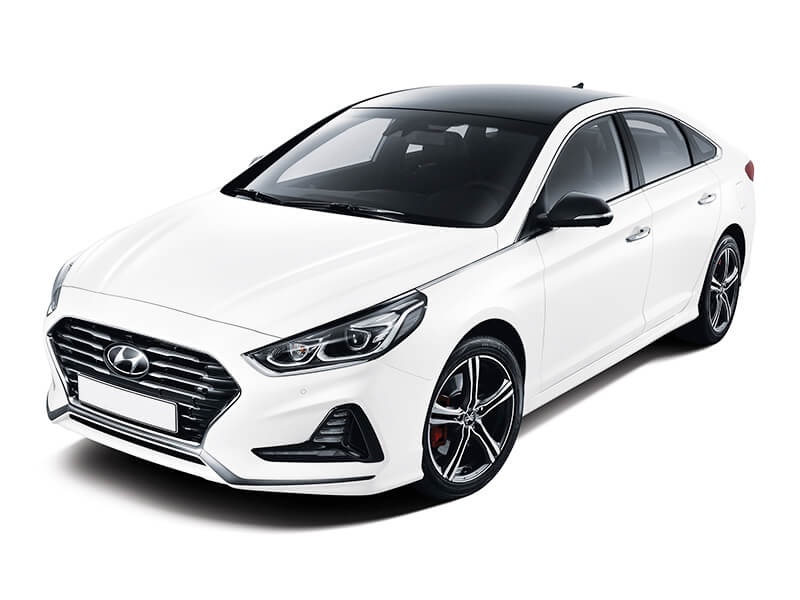
Australian Market
The updated Sonata is currently planned to launch in Australia around the middle of this year.
